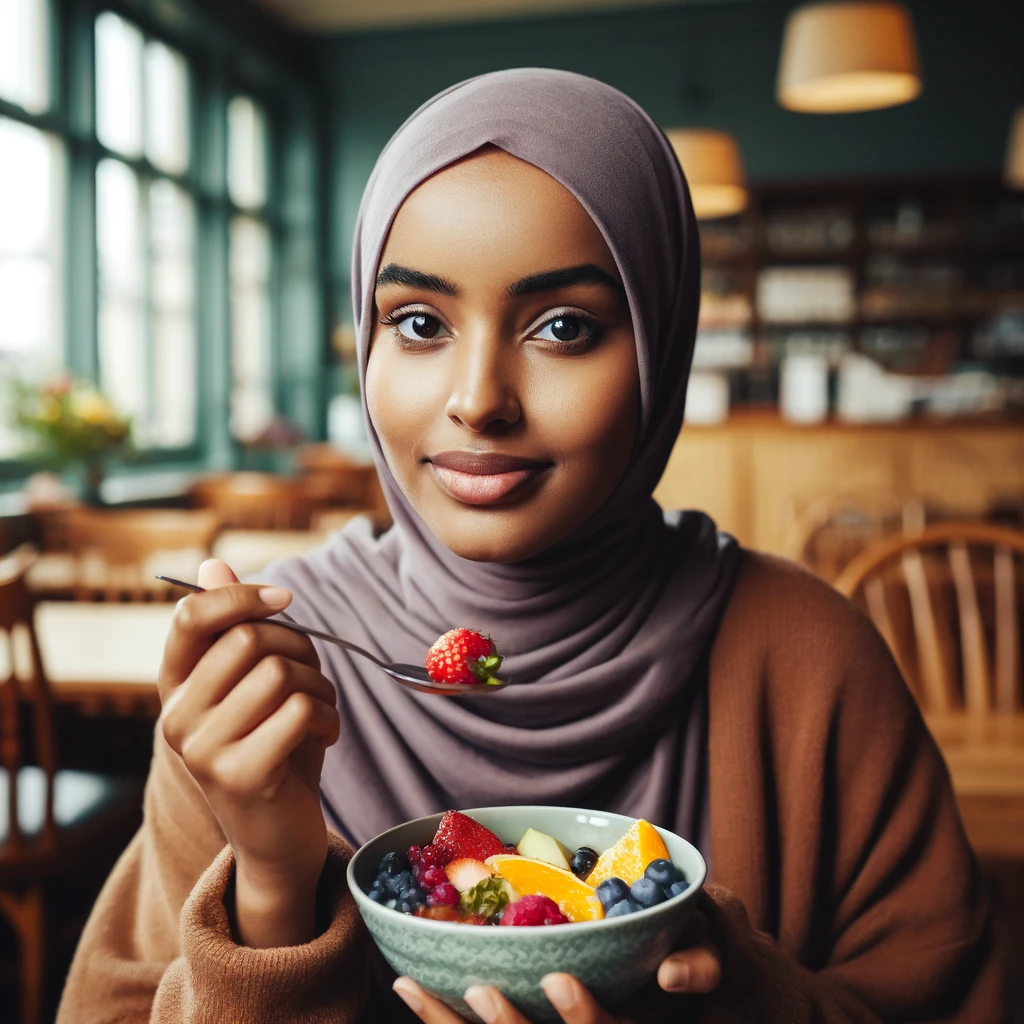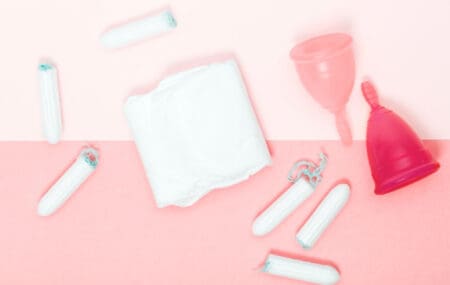
Optimising Your Follicular Phase: The Best Foods for Hormonal Balance and Energy
What you eat during your follicular phase can contribute to improving hormonal balance, energy production, and overall well-being. By fuelling your body with nutrient-dense foods, you can enhance energy levels, support digestion, and create the ideal foundation for hormone regulation. In this article, we’ll explore the best foods to nourish your body during the follicular phase. The aim is to help you feel your best and transition smoothly into the next stage of your cycle!
What is the follicular phase?
The follicular phase marks the start of your menstrual cycle. It begins on the first day of menstruation and ends with ovulation. During this phase, your body focuses on repairing the uterine lining and preparing for ovulation. Oestrogen levels rise steadily, influencing energy, mood, and metabolism. This hormonal boost often enhances mental focus, physical resilience, and overall vitality, making it an ideal time to align your nutrition with your body’s needs.
Why does nutrition matter during the follicular phase?
As oestrogen levels rise, your body naturally becomes more efficient at metabolising nutrients, reducing inflammation, and building strength. This makes the follicular phase a prime opportunity to focus on:
- Hormonal balance: Supporting the liver in metabolising oestrogen ensures a smooth transition to ovulation.
- Energy production: Whole grains and healthy fats provide sustained energy to match your body’s naturally higher stamina.
- Digestive health: Probiotic-rich and fibre-filled foods improve nutrient absorption and reduce bloating.
- Iron and vitamin D replenishment: These nutrients, often depleted during menstruation, help combat fatigue and regulate mood.
By eating foods tailored to these goals, you can enhance how you feel and support long-term health.
What to eat during the follicular phase
Fruit and vegetables
Fresh vegetables and fruits are foundational during the follicular phase. Vegetables like broccoli, artichokes, courgette, and carrots support the liver in processing oestrogen. Leafy greens like spinach provide essential nutrients like iron and folate. Brightly coloured fruits such as berries, citrus, and apples are rich in antioxidants and vitamin C. These help to reduce inflammation and boost immunity. Adding these ingredients to salads, smoothies, or stir-fries makes them easy and enjoyable to incorporate into your meals!
Protein
Lean proteins are essential for muscle repair and blood sugar balance. Incorporating foods like chicken, turkey, fish, eggs, and plant-based options such as tofu or lentils can help fuel your body for the increased energy demands of this phase. A well-rounded plate combining protein with fibre-rich foods like sweet potatoes or quinoa ensures you have steady energy release throughout the day!
Whole grains
Whole grains like oats, wild rice, and whole wheat provide B vitamins. These are essential for energy production and reducing fatigue. Complex carbohydrates support a stable blood sugar level, preventing the energy dips that can follow high-sugar meals. Starting your day with oatmeal or pairing grains with roasted vegetables creates a nourishing base for any meal.
Healthy fats
Healthy fats are important for hormonal balance and cellular health. Foods like avocados, walnuts, flaxseeds, and olive oil provide omega-3s and monounsaturated fats, which help reduce inflammation and maintain steady energy levels. Adding a handful of nuts to your snacks or drizzling olive oil on salads can easily incorporate healthy fats into your diet.
Sprouted and fermented foods
Sprouted and fermented foods, such as kimchi, sauerkraut, kefir, and sprouted grains, are excellent for digestive health. They contain probiotics that improve gut bacteria, enhancing nutrient absorption and reducing bloating. Including a serving of fermented vegetables or a glass of kefir in your meals can help support a healthy microbiome.
Simple tips for optimising the follicular phase
- Pair foods wisely: Combining vitamin C-rich foods (like citrus fruits) with iron-rich options (like spinach or lentils) enhances iron absorption.
- Balance your meals: Include a mix of proteins, healthy fats, and complex carbs in every meal to sustain energy levels throughout the day.
- Try seed cycling: Pumpkin and flaxseeds are particularly beneficial during this phase for supporting oestrogen levels. Add them to smoothies or sprinkle on salads.
- Stay active: The follicular phase is an excellent time for strength training or high-energy workouts. Fuel your exercise routine with nutrient-dense meals.
- Keep hydrated: Water helps with energy production, digestion, and cellular function. Add lemon or cucumber slices for added flavour and nutrients. Herbal teas like green tea can provide an antioxidant boost without the dehydrating effects of caffeine.
Foods to avoid
While focusing on nutrient-rich foods, it’s also wise to limit foods that might interfere with hormonal balance:
- Processed foods are often high in sodium, which can lead to water retention and bloating.
- Excess caffeine can disrupt sleep and elevate stress hormones, counteracting the calming effects of rising oestrogen.
- Refined sugar may cause blood sugar spikes, followed by energy crashes that impact focus and mood.
Islamic perspective: Nourishing the body and soul
The follicular phase, which begins with menstruation, represents renewal and preparation. Reflecting on what we eat and its purpose connects us to Allah’s provision and care.
The Prophet Muhammad ﷺ embodied a diet rooted in moderation, balance, and natural, wholesome foods. He often ate nutrient-dense items such as barley, dates, and olive oil, which align well with the foods recommended during the follicular phase. The Sunnah also emphasises mindful eating, including gratitude for every meal. The Prophet ﷺ said,
“The son of Adam fills no vessel worse than his stomach. It is sufficient for him to eat a few mouthfuls to keep his back straight. If he must fill it, then one third for his food, one third for his drink, and one third for air” (Sunan Ibn Mājah 3349).
By eating with intention and gratitude, we honour the trust (amānah) Allah has given us in caring for our bodies. This also reminds us to avoid wastefulness and appreciate the provision (rizq) that sustains both our physical and spiritual well-being. Taking care of our health aligns with the Islamic principle of excellence (ihsān) — striving for the best in all aspects of life, including how we nourish ourselves.
Big picture
The follicular phase offers a valuable opportunity to listen to your body’s signals and adjust your diet to suit what feels best for you. Every woman’s body is wonderfully unique. What works for one person might not work for another. While we share recommendations, it’s important to remember that your needs may vary.
Pay attention to your body. Notice how different foods make you feel — do they energise you or leave you feeling sluggish? If something causes bloating or discomfort, don’t hesitate to explore alternatives. Keeping track of your energy levels, mood, and symptoms alongside your dietary choices can reveal patterns that help you make smarter, more personalised food decisions.
Make it your own. You might find that certain suggested foods — like leafy greens or healthy fats — work wonders for you, while others don’t make much of a difference. That’s completely okay. The key is experimenting with foods that align with the nutritional goals of this phase, so you can create a diet that truly supports your well-being. By staying curious and mindful, you can discover what nourishes your body and makes you feel your best during the follicular phase.

